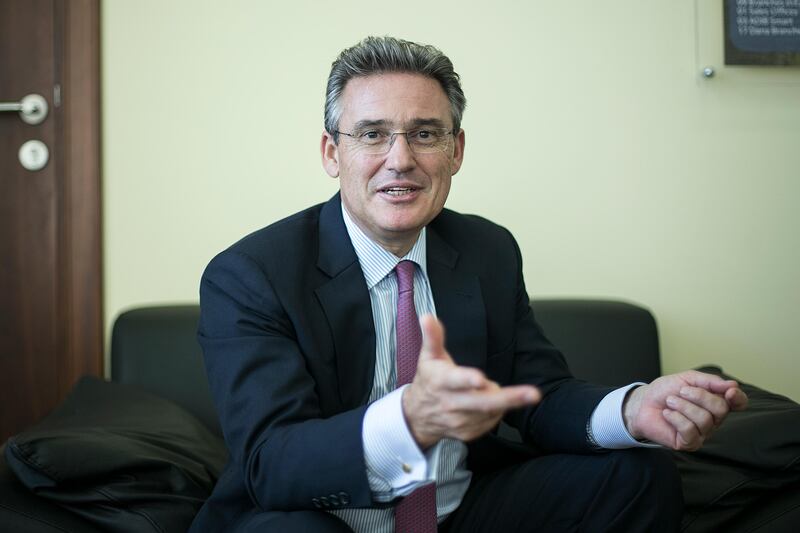Abu Dhabi Islamic Bank, the biggest Sharia-compliant lender in the Emirate, said it is planning to earmark significant financial resources on digital technology this year as banks in the UAE race to lower costs and boost revenues by having a nimble branch network that relies less on humans.
The lender, which has one of the highest proportion of local customers among UAE banks, is not rushing to significantly downsize its branch network like many other banks as their clients continue to value human interaction, according to Phil King, the head of retail banking at Abu Dhabi Islamic Bank. He declined to disclose the amount to be spent on digital technologies. As well as partnering with fintech companies, the bank is also planning to open three to five branches across the UAE next year.
"We have a view that the human touch is still very important. We think there is a hybrid model emerging that we are hopefully pioneering, (which) is digital with a human touch," Mr King said in an interview with The National at the bank's headquarters in Abu Dhabi. "Our customers are saying I want to be able to do these things digitally but also want to be able to come into the branch and see my relationship manager."
____________________
Read more:
[ Abdul Aziz Al Ghurair: Digital banking gaining speed in the UAE ]
_____________________
The banking executive noted that while mobile banking transactions at ADIB rose 49 per cent in the first half of the year versus the same period last year that was accompanied by only by a 10 per cent drop in visits made by customers to the bank's branches during the same time frame. Still, the banker said that new branches would be smaller in size, ranging between 35 to 70 square meters versus the larger ones of the past that measured between 250 square meters to 300 square meters.
Investments in technology and digitisation are timely for UAE banks as profitability has slipped in the wake of the three-year oil slump, the biggest since the 2008 financial crash. Banks are fortunate that the UAE has one of the highest smart phone penetration in the world. Emirates NBD, Dubai's biggest bank by assets, said in July it plans to spend Dh1 billion on technology over the next three years to help reduce costs and Dubai-based lender Mashreq Bank said last month that it expected a reduction of 10 per cent of its workforce over the next year due to investments in artificial intelligence.
"Bank customers are going digital, so banks have to tilt their product offering to suit digital channels and develop digital channels," said Sanyalaksna Manibhandu, head of research at NBAD Securities.
"So digitisation on the part of the bank is being driven by customer demand. As one can imagine, there will be upfront capital expenditure and operational expenditure increases as banks invest in widening and deepening their digital offering. There will also be savings from reducing headcount and branches currently supporting bricks and mortar product and service channels. The banks that are able to predict where digitisation is leading as opposed to banks that are following the trend will make incremental revenue and profit ahead of peers from disitising."
Mr King said that the bank's retail lending had held its own in the past couple of years amid the economic slowdown, supported by the fact that between 60 to 70 per cent of its 950,000 retail banking clients are locals. Banks typically offer better financing terms to local borrowers because they pose less of flight risk than expats. And while many banks have been axing jobs in recent years, the banker said Adib has been adding to its headcount.
As a result of the bank's increase in consumer lending, the executive said that ADIB's retail staff had grown 7 per cent so far this year to 247 employees compared to a year-earlier period.
ADIB's had been fairing well in the midst of the economic headwinds facing the banking sector. Its second-quarter net profit rose 8.7 per cent, beating analyst forecast, thanks to a drop in provisions, gains in income from credit cards and other fee products.






